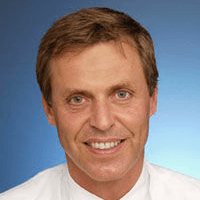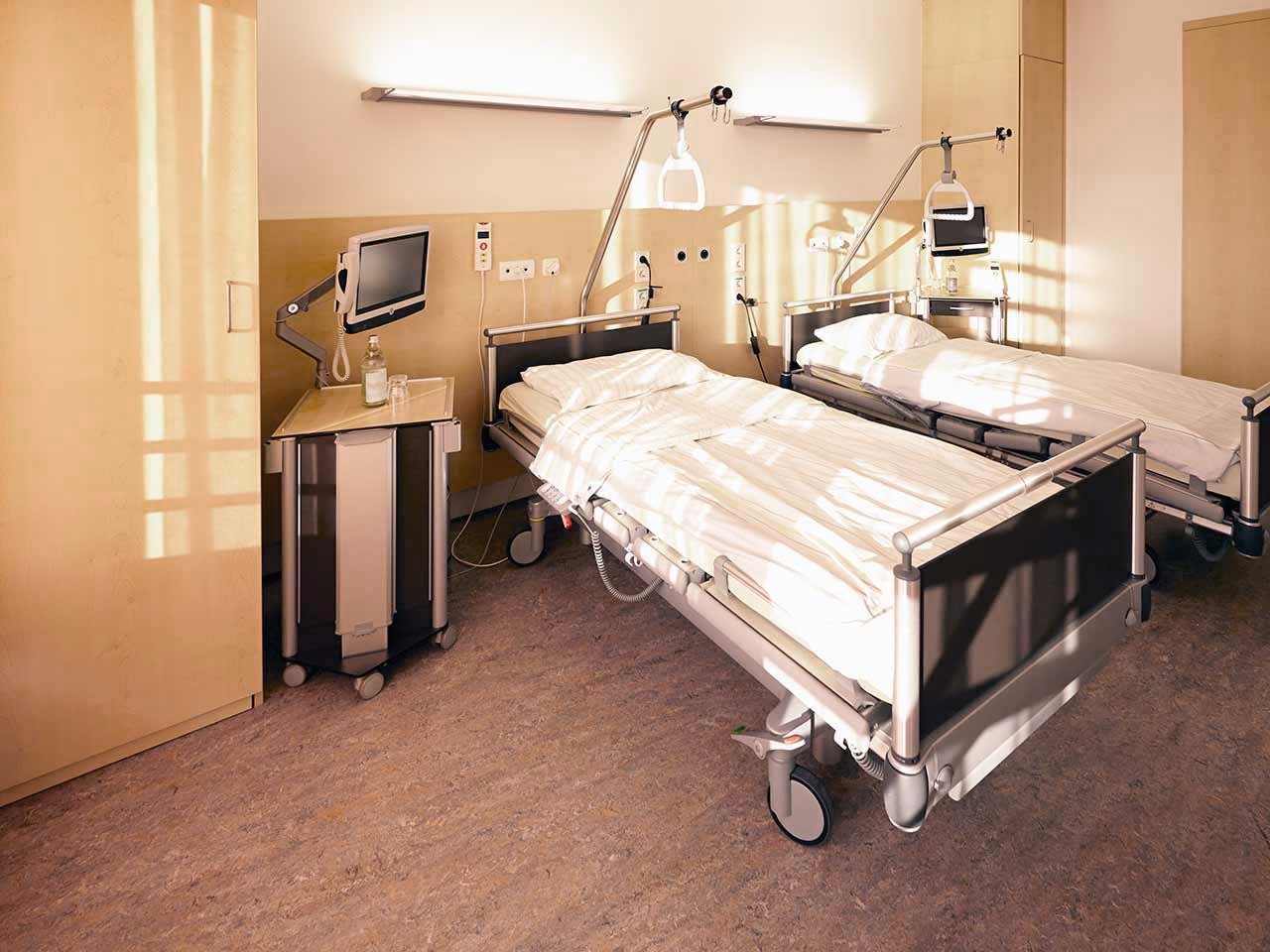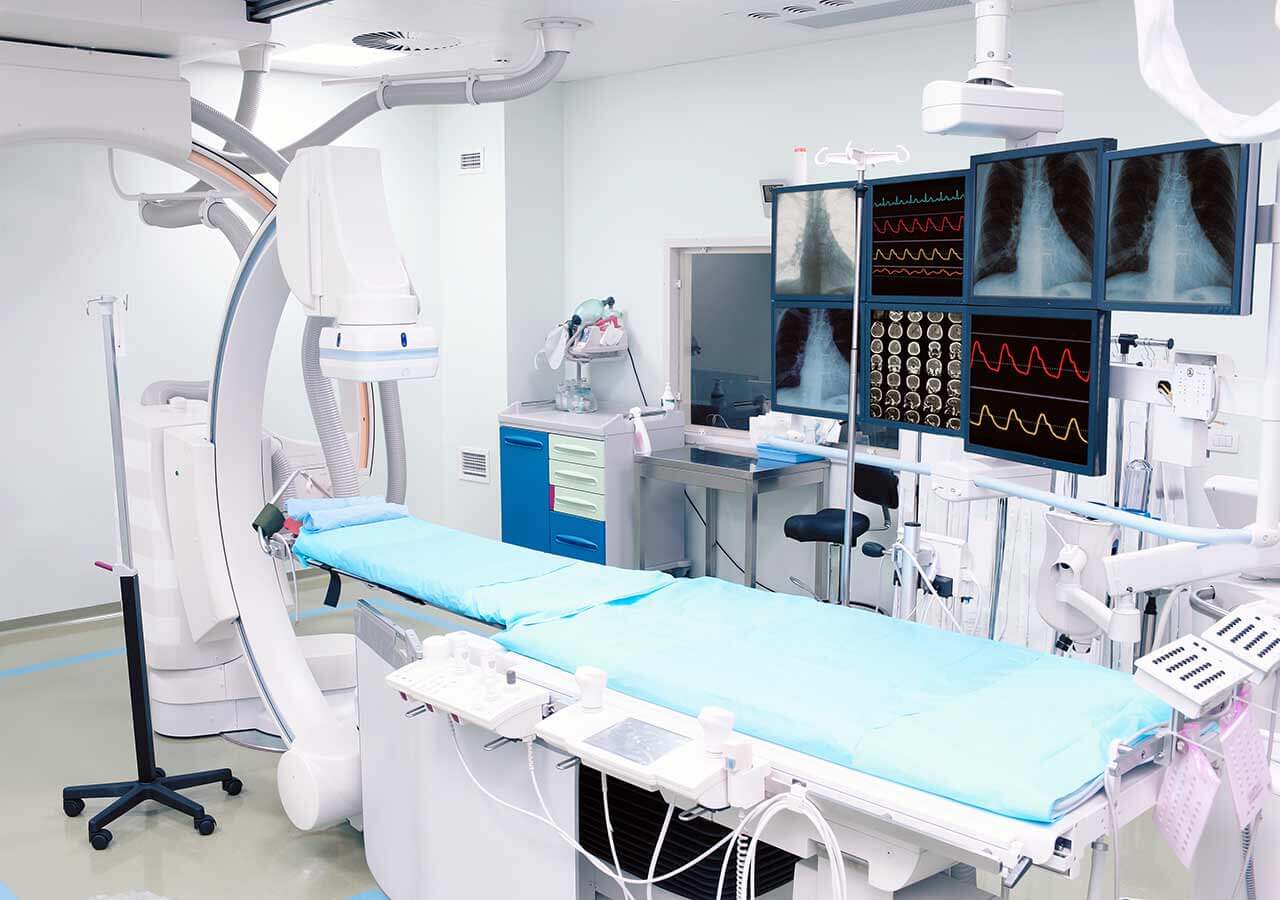
The program includes:
- Initial presentation in the clinic
- clinical history taking
- physical examination
- review of medical records
- laboratory tests:
- complete blood count
- general urine analysis
- biochemical analysis of blood
- indicators of inflammation (CRP, ESR)
- indicators blood coagulation
- wound swab for bacteriological test
- preoperative care
- necrosectomy, plastic skin repair
- wound debridement
- vacuum dressing treatment
- symptomatic treatment
- control examinations
- the cost of essential medicines and materials
- nursing services
- full hospital accommodation
- explanation of future recommendations
Required documents
- Medical records
- Photo of the target body region
Service
You may also book:
 BookingHealth Price from:
BookingHealth Price from:
About the department
The Department of Adult and Pediatric Oral, Maxillofacial, Plastic Surgery at the University Hospital Jena offers the full range of medical services in the areas of its specialization. In addition to dental surgery, the department specializes in traumatology of the facial skull and skull base, head and neck tumors, orthognathic surgery, craniofacial malformations, cleft lip, plastic reconstructive and aesthetic surgery, dentoalveolar interventions, etc. An interdisciplinary approach to the diagnostics, counseling and development of treatment programs contributes to the achievement of the best treatment outcome. The department is headed by Prof. Dr. med. Stefan Schultze-Mosgau, who according to the Focus magazine, ranks among the top specialists in implantology.
One of the department's priorities is the diagnostics and treatment of benign and malignant tumors of the oral cavity, maxillofacial area, ears, etc. The department's specialists have advanced experience in the treatment of hemangiomas – benign vascular lesions, which are quite common in newborns. Depending on the location, type and activity of hemangioma growth, the choice is made in favor of either active therapy or waiting tactics. Thanks to a combination of long experience and advanced medical technology, the best treatment results are provided.
The special focus is on the treatment of congenital facial malformations. In addition to a complete cleft lip, jaw and palate, the department successfully treats other, more rare, malformations, for example, Pierre Robin sequence, Treacher Collins syndrome, Goldenhar syndrome, cherubism, etc.
The treatment mainly involves the use of microsurgical techniques. In particular, microsurgical methods are successfully used in the reconstruction of bone and soft tissue defects of the head and neck caused by oncological diseases, after accidents or in the case of facial malformations. At the same time, tissues (bones, muscles, skin) from other parts of the body are used for the reconstruction of various facial structures. The use of the very latest microsurgical techniques helps to achieve optimal cosmetic results.
The department's range includes the following focuses:
- Diagnostics and treatment of dental diseases, including the tooth-supporting apparatus
- Dental implantology
- Facial malformations
- Diagnostics and treatment of cleft lip, jaw and palate and other malformations
- Surgical correction of skull malformations
- Diagnostics and treatment of malocclusion (dysgnathia)
- Oncological diseases
- Diagnostics and treatment of tumors of the eye and its appendages
- Diagnostics and treatment of head and neck tumors
- Brain tumor surgery in the skull base
- Reconstructive surgery of the head, neck, ears
- Plastic, reconstructive surgery
- Traumatology
- Diagnostics and treatment of head and neck injuries
- Fractures of the facial skull, nose, teeth injuries
- Temporomandibular joint replacement
- Other head and neck diseases
- Diagnostics and treatment of diseases of the eyelids, lacrimal apparatus and orbit
- Diagnostics and treatment of osteomyelitis
- Diagnostics and treatment of external ear diseases
- Diagnostics and treatment of lacrimal system disorders
- Diagnostics and treatment of oral cavity diseases
- Peripheral nerve surgery
- Surgery in chronic pain syndromes
- Dentoalveolar surgery
- Diagnostics and treatment of dentofacial deformities
- Craniofacial surgery
- Aesthetic dentistry
- Laser surgery
- And other diagnostic and therapeutic options
Curriculum vitae
- 2009 Chairman of the Board of the National Conference of Medical Directors/Heads of Departments, Medical Universities and Departments of Thuringia.
- 2008 Member of the Pierre Fauchard Academy, Member of the Strasbourg Osteosynthesis Research Group.
- Since 2007 Invitation to the position of the Professor and Head of the Department of Oral, Maxillofacial Surgery and Medical Director of the Department of Adult and Pediatric Oral, Maxillofacial, Plastic Surgery at the University Hospital Jena, Friedrich Schiller University Jena.
- 2005 Early appointment as a Visiting Professor at the Faculty of Medicine at the Friedrich-Alexander University Erlangen-Nuremberg.
- 2000 - 2005 Senior Physician in the Department of Oral, Maxillofacial Surgery, Friedrich-Alexander University Erlangen-Nuremberg, Head of the Department.
- 2004 - 2006 Editorial Board Member of the Implantology Journal.
- 2002 Plastic Surgery.
- 2000 Doctoral thesis defense.
- 1999 Medical Specialist in Oral, Maxillofacial Surgery.
- 1995 - 2000 Medical Specialist in Surgical Dentistry.
- 1990 - 1995 Scientific Assistant in the Department of Oral, Maxillofacial and Plastic Surgery at the Hannover Medical School.
- 1989/1996 Thesis defense, certified Dentist / Doctor.
Photo of the doctor: (c) Universitätsklinikum Jena
About hospital
According to the prestigious Focus magazine, the University Hospital Jena regularly ranks among the top German medical facilities!
The hospital has positioned itself as a multidisciplinary medical facility with a long history of more than 200 years. Since its foundation, the hospital has been constantly developing and modernizing, thanks to which nowadays it offers patients the highest level of treatment in Germany based on the use of innovative technologies and the very latest therapeutic techniques. The hospital consists of 26 specialized departments and 25 research institutes. It treats more than 53,600 inpatients and about 274,000 outpatients every year. The staff of the hospital includes more than 5,600 competent doctors.
The extensive resources of the university hospital, high treatment standards, and the introduction of new research developments provide first-class treatment in Germany meeting the stringent international standards. The hospital has an excellent reputation not only in Germany, but also far beyond its borders, due to which it accepts a large number of foreign patients for the diagnostics and treatment.
Despite the technical progress and the availability of accurate computerized systems, the patient’s physical health and emotional state is the main value of each employee of the hospital, since some diagnoses cause emotional distress in patients. The doctors of the hospital believe that the key to a successful result is a comprehensive and individual approach, so they spend a lot of time talking with patients, listen carefully to all their wishes and support at all stages of the therapeutic process. All this in combination with high-precision diagnostic techniques and the very latest types of therapy forms a solid basis for the achievement of an optimal treatment result.
Photo: (c) depositphotos
Accommodation in hospital
Patients rooms
The patients of the University Hospital Jena live in comfortable single and double rooms made in a modern design. Each patient room is equipped with an ensuite bathroom with shower and toilet. The room has enough space to store personal belongings, as well as a table and chairs for receiving visitors. A bedside table can be converted into a table so that patients can eat right in their bed. Each room has a TV, and there is also access to the Internet. In addition, the hospital offers enhanced-comfort rooms.
Meals and Menus
The patient and his accompanying person have a daily choice of three menus. If for some reason the patient does not eat all the foods, he will be offered an individual menu. Please inform the medical staff about your dietary preferences prior to the treatment.
Further details
Standard rooms include:
Religion
Religious services are available upon request.
Accompanying person
During the inpatient program, an accompanying person may stay with you in a room or at the hotel of your choice.
Hotel
During the outpatient program, you can live at a hotel of your choice. Managers will help you to choose the most suitable options.





